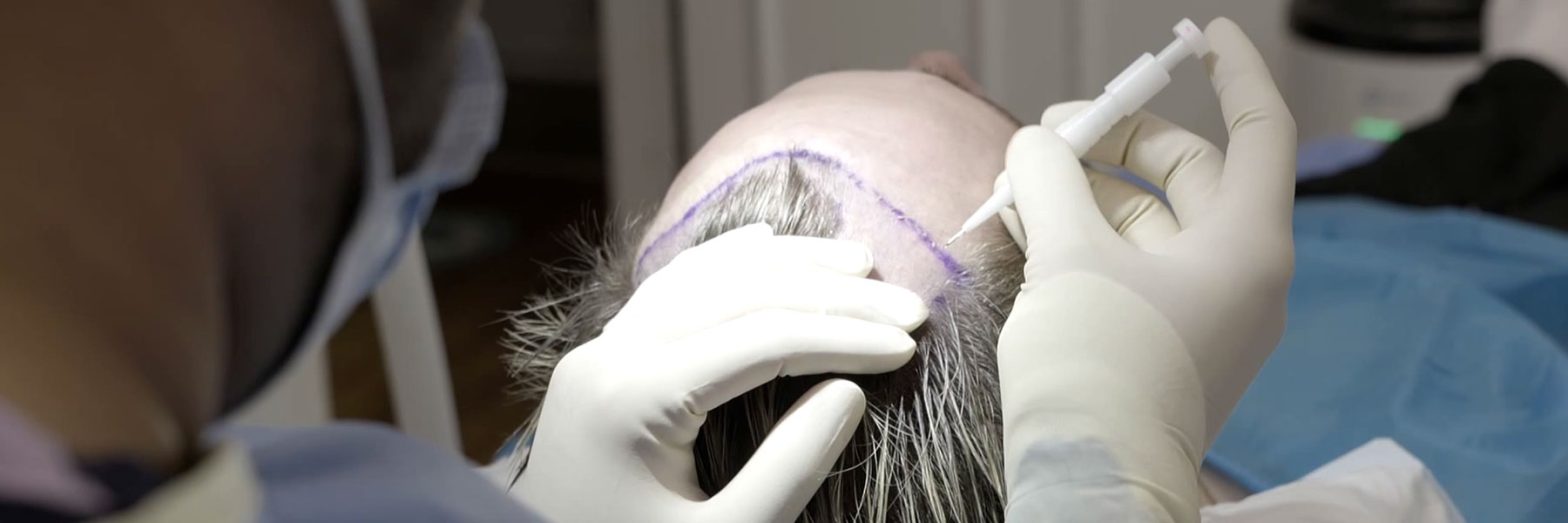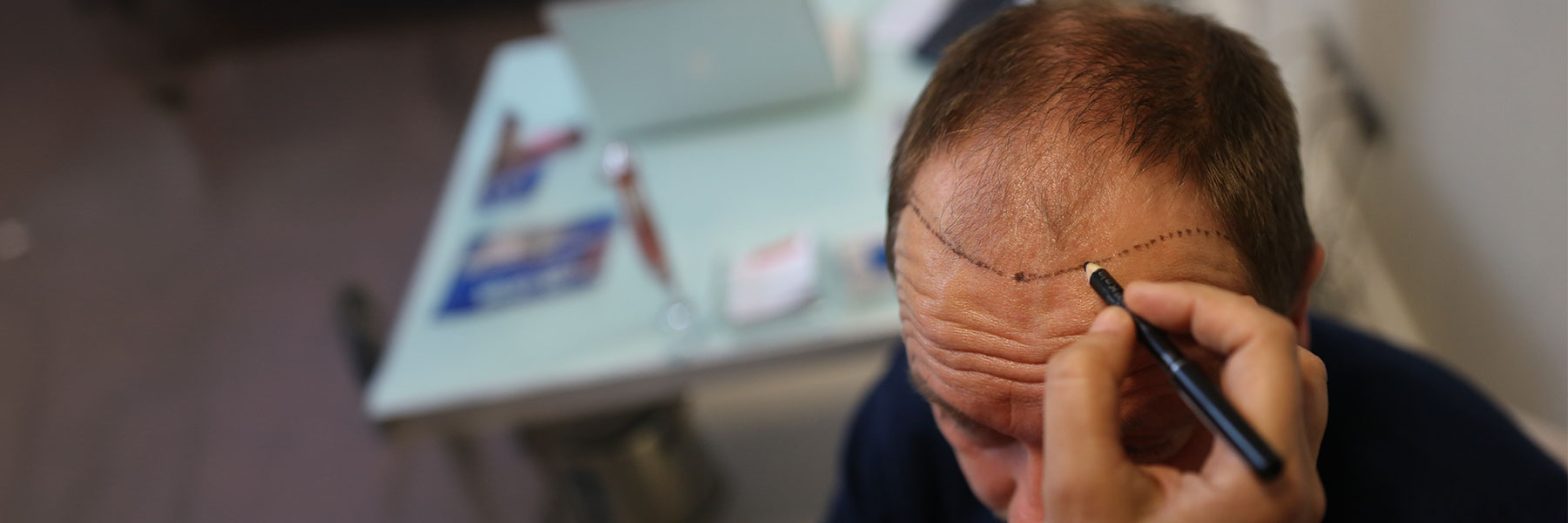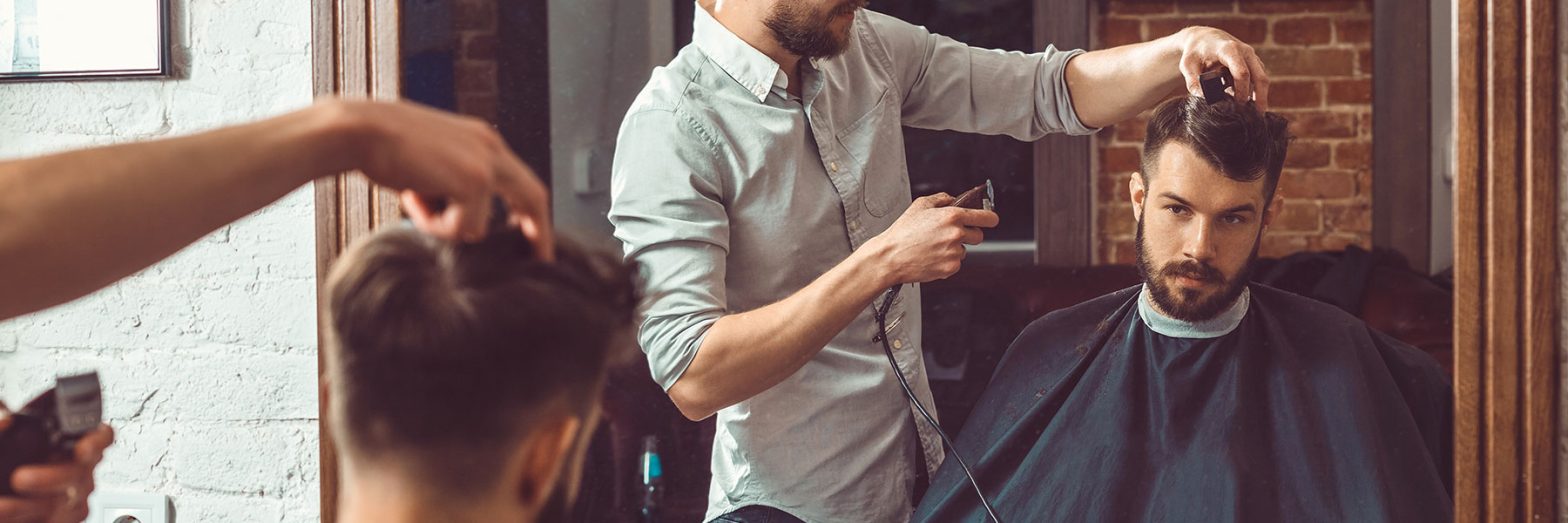
Are Hair Transplants Safe? Success rate of hair transplant
Hair Transplants, are a safe procedure, but only when performed by a qualified, and experienced hair transplant surgeon. And when you are supported with the correct aftercare.
All procedures, including Hair Transplants, do come with risks and it is important that you are aware of these prior to deciding if a hair transplant procedure is right for you.
In our consultations, our expert hair transplant surgeons will not only assess your hair loss and decide on the best treatment plan for you.
They will also go through in detail the risks and side effects of a hair transplant procedure to allow you to be well-informed before making your decision.
What are the risks of hair transplant surgery?
All procedures come with risks and hair transplant surgery is no exception. In the vast majority of cases, risks are rare and if you choose to have your hair transplant procedure in the UK with a reputable surgeon then any risks or side effects should be minimal.
Common risks of hair transplant surgery include:
- Infection – The placement incisions for Hair Transplants are very small so the risk of post-operative infection is low, and the aftercare advice provided will help to reduce this risk too.
- Swelling – Swelling is common after a hair transplant but should subside after 2-4 days.
- Bleeding – Bleeding post-procedure is normal. You will be provided with gauze to place over the area. This should subside after 1-2 days.
- Numbness – Temporary numbness of the scalp can occur and last for 3-18 weeks, it is very rare for it to be permanent.
- Scarring – Our expert surgeons are very skilled in ensuring any scarring in the donor area is minimal.
- Itching/Irritation – Irritation is common post-procedure; aftercare advice will be provided to help reduce this.
- Loss of grafts – Hair shedding is common after a hair transplant procedure but very rarely do full hair grafts fall out. Aftercare advice will detail how to avoid rubbing the area in the early days. In the majority of cases, hair grafts become permanent after 10 days.
There are a variety of risks that are rare, but can happen, usually as a result of improper surgical techniques and poor wound care. These include:
- Hair transplant failure
- Unnatural Hairline
- Not enough density
- Poor hair follicle quality
- Scarring
- Overharvesting
- Necrosis
How can I avoid these risks?
Whilst many risks will not compromise the safety of your hair transplant procedure, some do have the potential to develop into something more serious if you are not under the right care.
Many of the risks or side effects of a hair transplant procedure are unavoidable but perfectly manageable and temporary during the recovery period.
We provide our patients with detailed aftercare advice which will help them to avoid any unnecessary risks. You can also contact us 24/7 where a member of our nursing staff will be able to discuss any concerns you may have.
If you are hoping to avoid the risk of a poor hair transplant result or overharvesting then it is best to:
- Have your hair transplant procedure performed by an expert surgeon
- Ensure you are using a reputable and safe clinic
- Ideally be located in the UK
- Check that they are rated by the CQC
CQC Rated Hair Transplant Clinic
The Private Clinic, are proud to be a CQC Rated Good Clinic, with comments highlighting our dedication to ensuring the safety and comfort of our patients. Comments include:
“Staff treated patients with compassion and kindness, respected their privacy and dignity, and took account of their individual needs.”
“Staff treated patients with compassion and kindness, respected their privacy and dignity, and took account of their individual needs. Staff were discreet and responsive when caring for patients. Staff took the time to interact with patients in a respectful and considerate way.”
“Patients we spoke with said staff treated them with kindness. They felt they had been offered enough time to ask any questions they had, and staff were unable to explain the benefits and risks involved in undertaking procedures. Patients had a patient coordinator allocated, who supported them from initial contact made with the clinic until their discharge.”
Are hair transplants safe for everyone?
Hair transplants are not suitable for everyone. When you attend a consultation with your hair transplant surgeon, they should examine your hair and scalp and ask about your medical history to ensure that you are a good candidate for hair transplant surgery.
Patients can be turned away from hair transplant procedures when the surgeon believes the procedure will be ineffective or that it would not meet the desired expectations of the patient. But for other patients.
But for other patients, a hair transplant could be unsafe. It is very important that you are honest with your surgeon and inform them of any medical conditions or medication that you may be on so that they can ensure that you are not a risk.
How do we keep our patients safe during hair transplant procedures?
Patient care and safety are top priority at The Private Clinic.
Here are some ways that we ensure you are safe during your hair transplant procedure
- We create a tailored treatment plan for all patients based on the cause, rate and extent of your hair loss.
- We have robust practicing guidelines to ensure that patients’ safety is at the forefront during any type of procedure within our clinics.
- We are experienced in supporting patients who are feeling nervous or who may have a fear of needles so that they are feeling comfortable and safe throughout the procedure.
- We provide continuous support and aftercare following your hair transplant procedure including multiple follow-up appointments with your surgeon to check your progress.
- We only work with qualified, professional hair transplant surgeons who have years of experience.
- We’re rated Good with the Care Quality Commission.
How to identify black market hair transplant clinics
Unfortunately, there is a growing number of black-market hair transplant clinics that are performing dangerous and poor transplants in both the UK and abroad.
Usually, these types of clinics are primarily run by technicians. It is illegal for hair transplant technicians to make any cuts or incisions in the UK.
There are a number of red flags to look out for when choosing a clinic for your hair transplant procedure:
- Offering large numbers of grafts at cheap prices
- Technicians performing the surgery and anaesthesia with no Doctors
- Not able to provide clinical advice to patients on whether they are a good candidate for FUE hair transplant surgery or not
- Guaranteeing results and offering certification of quality
We encourage all patients looking to have a hair transplant to do their homework on the clinic and surgeon they are visiting.
Useful links:
Why choose The Private Clinic for FUE Hair Transplant Surgery?
Many see a heavily discounted hair transplant or a hair transplant abroad as a quick and cheap fix. In many cases, it can take a lot more time and money to rectify a poorly performed hair transplant.
At The Private Clinic we pride ourselves on our results, service, and aftercare – see our Trust Pilot rating, we have the highest rating in the industry.
- Highly experienced Hair Transplant Surgeons who have decades of experience and who have carried out thousands of hair transplants.
- The Private Clinic prides itself on ensuring you have the best quality and most comprehensive care.
- FUE is a minimally invasive treatment (meaning there is no cutting of a strip) and carried out under local anaesthetic – many patients either watch TV, or even fall asleep during the procedure.
- You won’t require any stitches after your treatment. This means that the recovery time is also reduced when compared to the Strip surgery (FUT). Find out more about hair transplant recovery here.
- We use the finest instruments, resulting in as minimal trauma to your scalp as possible.
- Following treatment, there will be no linear scarring across the back of your head as seen with the strip method (FUT) – you’ll be free to wear your hair long or short.
- We choose the best follicular unit (a group of hairs); this ensures that only the strongest, healthiest grafts are used for your hair transplant procedure.
- Your results will look natural, with denser packing – the hair is implanted in the direction that matches your hair growth, and because we select healthy follicular units, the treated area will look densely filled.
- Our surgeons are the only surgeons in the UK offering the Unshaven Hair Transplant (U-FUE) (the long-hair hair transplant), to those who prefer not to shave beforehand. At your consultation, we will be able to advise you on whether an unshaven procedure is suitable for you.
- Scars resulting from injuries or previous surgeries can also be corrected. This could be a previous bad hair transplant, or we can cover linear scars caused by FUT hair transplants.
- 24-hour patient helpline to ensure you are always in the best of hands.
- As many post-operative care and appointments with your Hair Transplant surgeon and nursing team as required.
- Comprehensive patient information, every step of the way.
- Outstanding clinic facilities.
- Our excellent reputation for patient safety and satisfaction, honest advice, and outstanding care means your journey with The Private Clinic will be an exciting experience for a new hairline.
- View our gallery of FUE Hair Transplant before and after results here.
- Hear from previous hair transplant patients by reading their stories here.
- Read our extensive Hair Transplant FAQs
- Find out more information in our Hair Transplant blogs
- Consultations available in London Harley Street, Birmingham, Leeds, Manchester and Northampton.
Hair Transplant Surgeons at The Private Clinic
- Dr Furqan Raja, MB ChB, GMC Number: 7419667
- Mr Michael Mouzakis S.C.F in Plastic Surgery, GMC Number: 7237640
- Dr Luca De Fazio MD, BSc, MSc, GMC Number: 7095123
- Dr Ismail Ughratdar, MB ChB, GMC Number: 6103427
If you would like to discuss your hair transplant options, please call 03339209135 or use our online hair transplant contact form.








